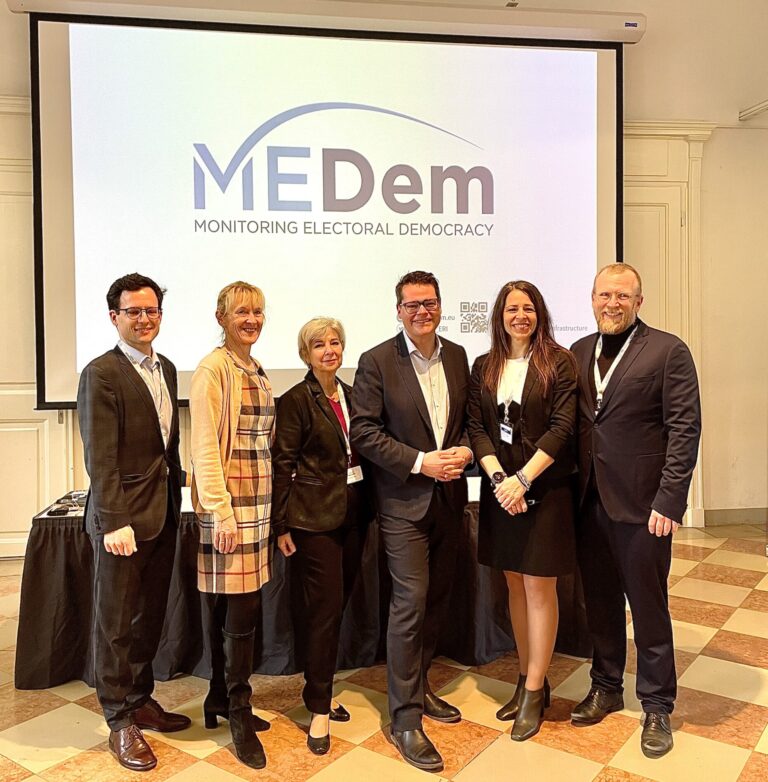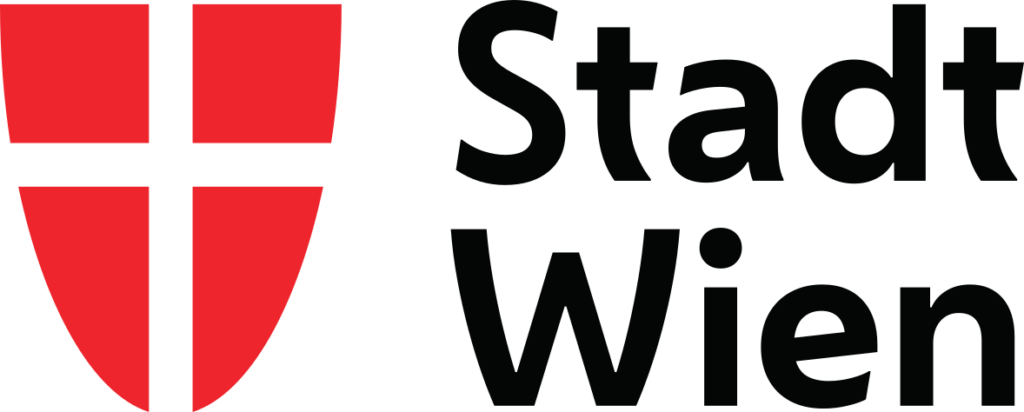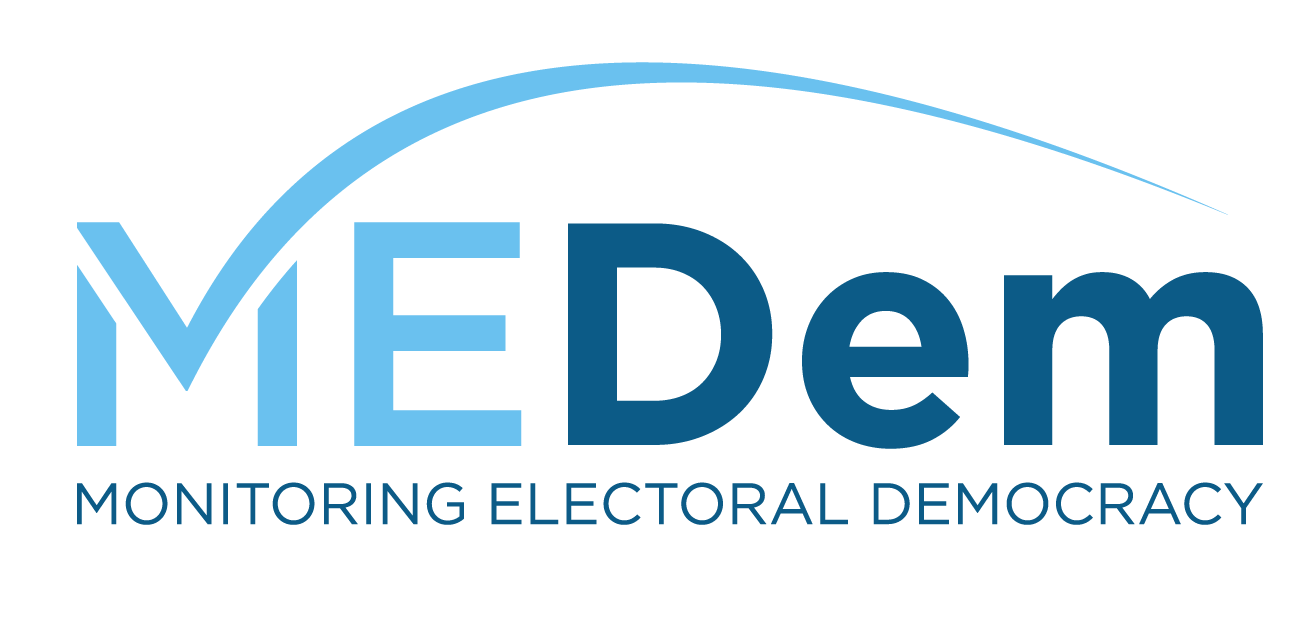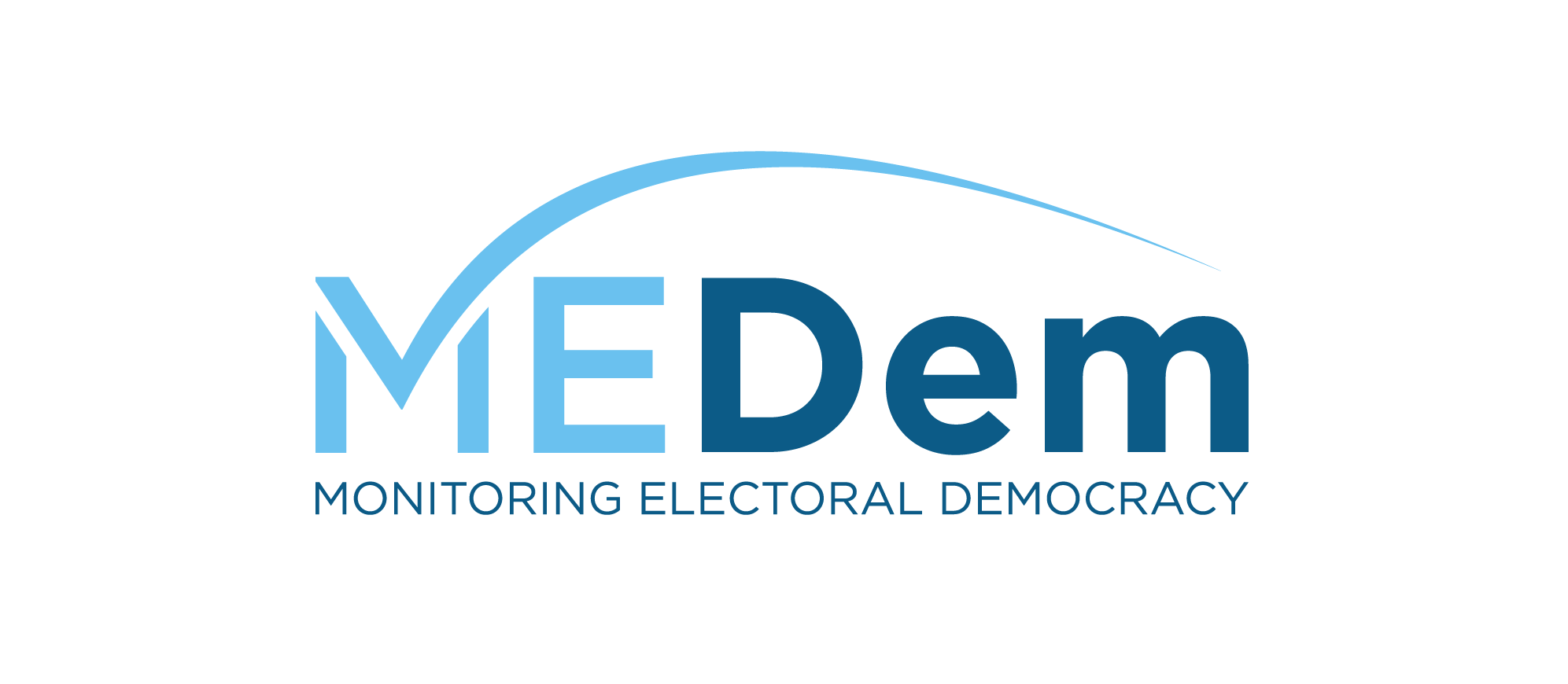THE FUTURE OF DEMOCRACY RESEARCH: MEDEM CONFERENCE 2024
February 29 and March 1 2024 mark the dates of the 2nd MEDem Conference & Workshop. Leading researchers and non-academic stakeholders from across Europe and beyond gathered at the University of Vienna to collaborate and discuss the future developments and challenges facing democracy research, as well as ways in which to advance MEDem as a research infrastructure in the pursuit of a spot on the ESFRI roadmap.
“Democracy is not a given – it requires daily dedication and effort. We recognize that true democracy thrives when all voices are heard and valued.” Executive City Councillor of the City of Vienna, Jürgen Czernohorszky, highlights democracy as a crucial pillar of society that can only function when all of its members, especially the marginalized and disenfranchised, are included in political processes.
On February 29 and March 1, the University of Vienna hosted around 60 scholars and experts from 29 institutions and 18 countries along with representatives from the Austrian Ministry of Education, Science and Research, data and fact-checking journalists, and the organizing team of the MEDem Headquarters. Both days were filled with vibrant discussions and workshops on a wide array of topics related to MEDem as the future research infrastructure in the field of democracy research, such as data linkage, interoperability, and harmonization as key components of MEDem’s services.
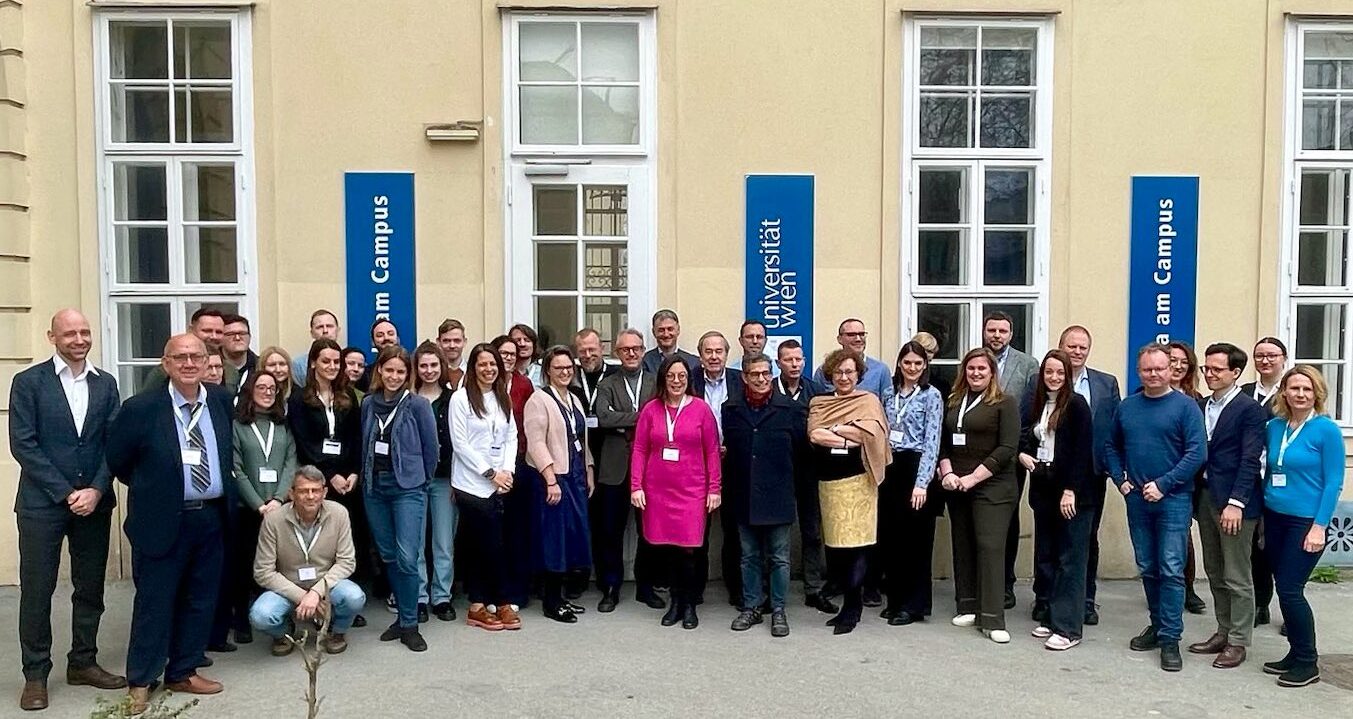
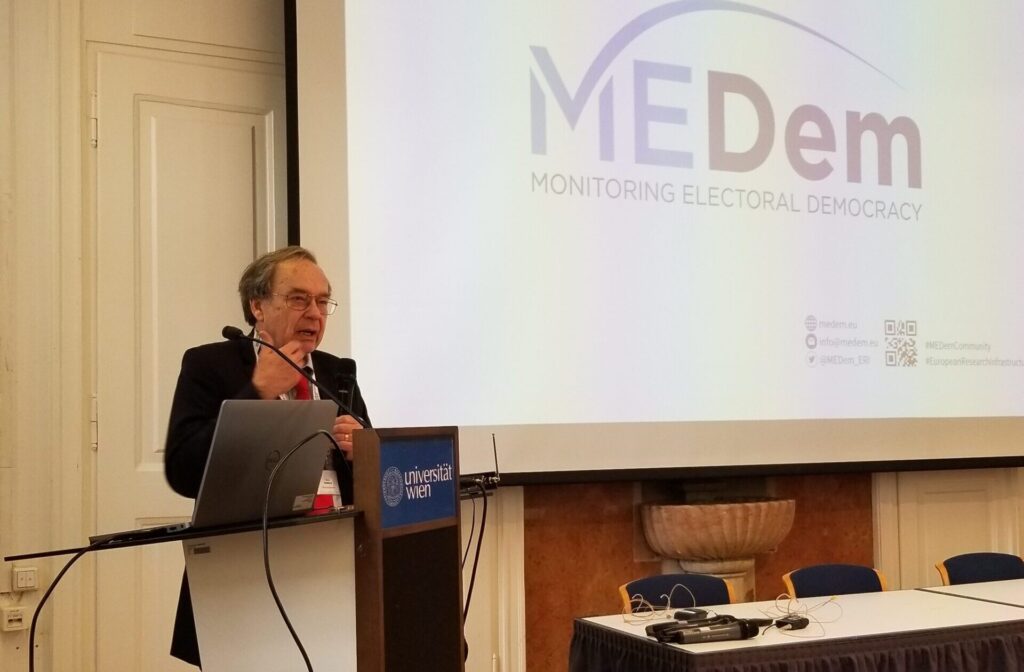
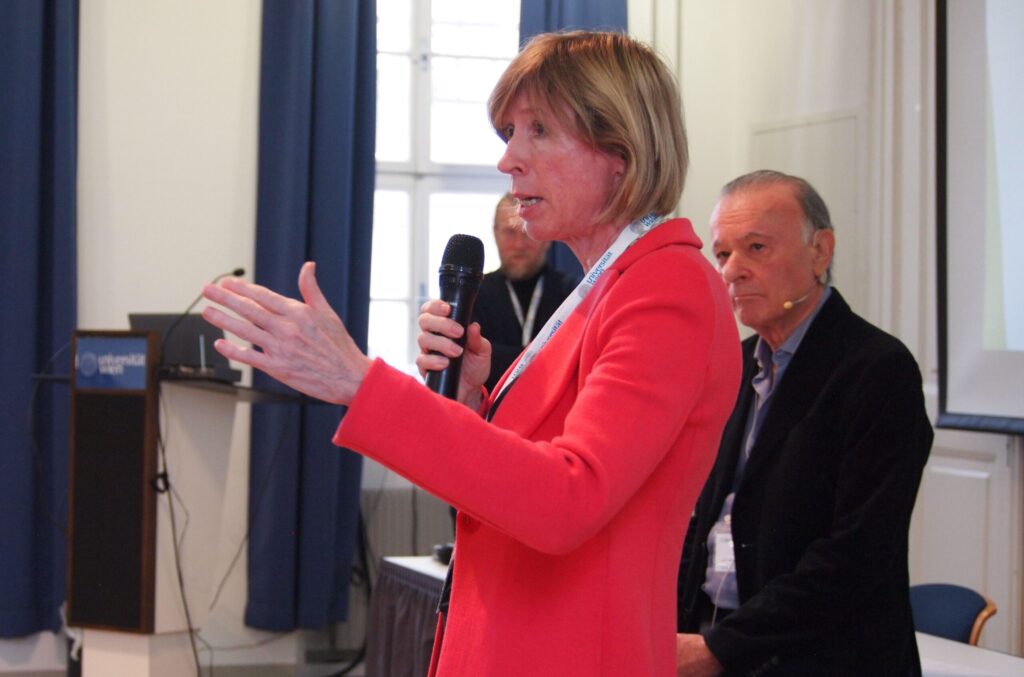
CONFERENCE AGENDA
The conference started out on Thursday, February 29 with introductory speeches by Vice-Rector Manuela Baccarini of the University of Vienna, Executive City Councillor for Climate, Environment, Democracy and Personnel Jürgen Czernohorszky and Barbara Weitgruber, Director General for Scientific Research and International Relations at the Federal Ministry of Education, Science and Research. They all highlighted the importance of MEDem in its role in better understanding and strengthening democratic processes.
Keynote speakers Liesbet Hooghe and Gary Marks (The University of North Carolina at Chapel Hill) demonstrated the importance of – and missed opportunities when it comes to – data linkage to better understand the relationship between education and political ideology. Founding member of MEDem, Mark Franklin (European University Institute), stressed the need for efforts in terms of inventorization, data harmonization and interoperability when it comes to ensuring the reusability of data essential to democracy research. “The first election study survey in Germany was lost because nobody thought it would be important for the future”, Franklin stated. He underscored MEDem’s commitment to making data findable, accessible, interoperable, and reusable (FAIR data).
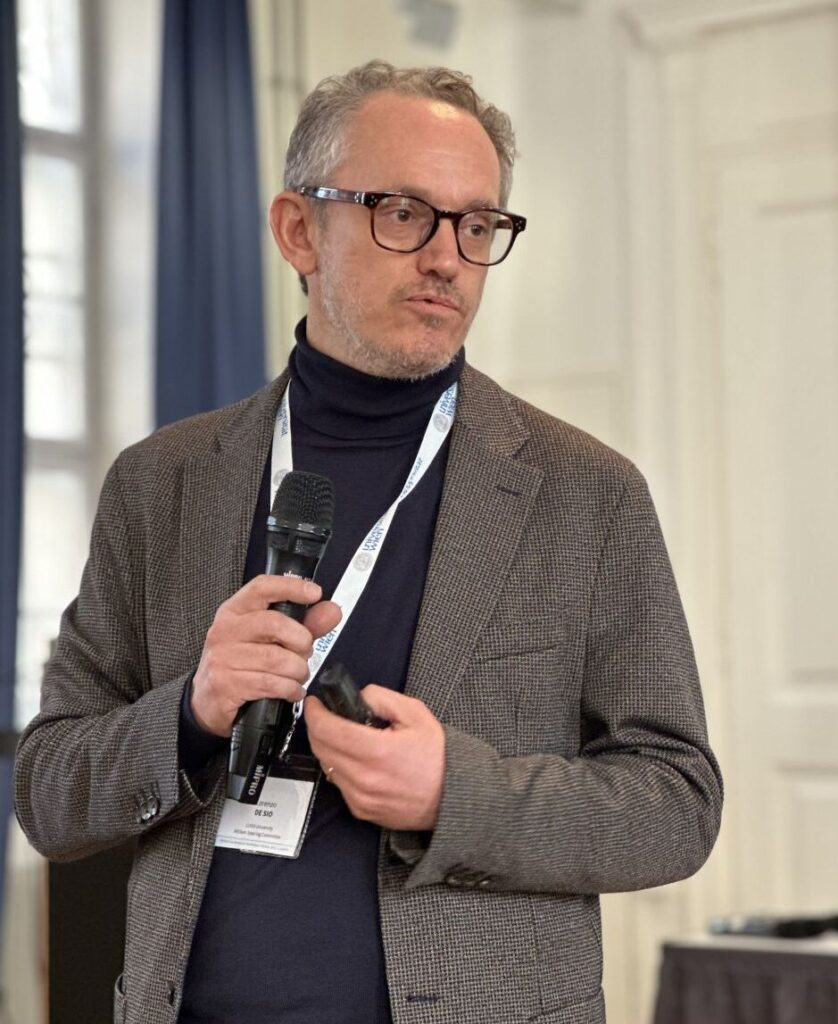
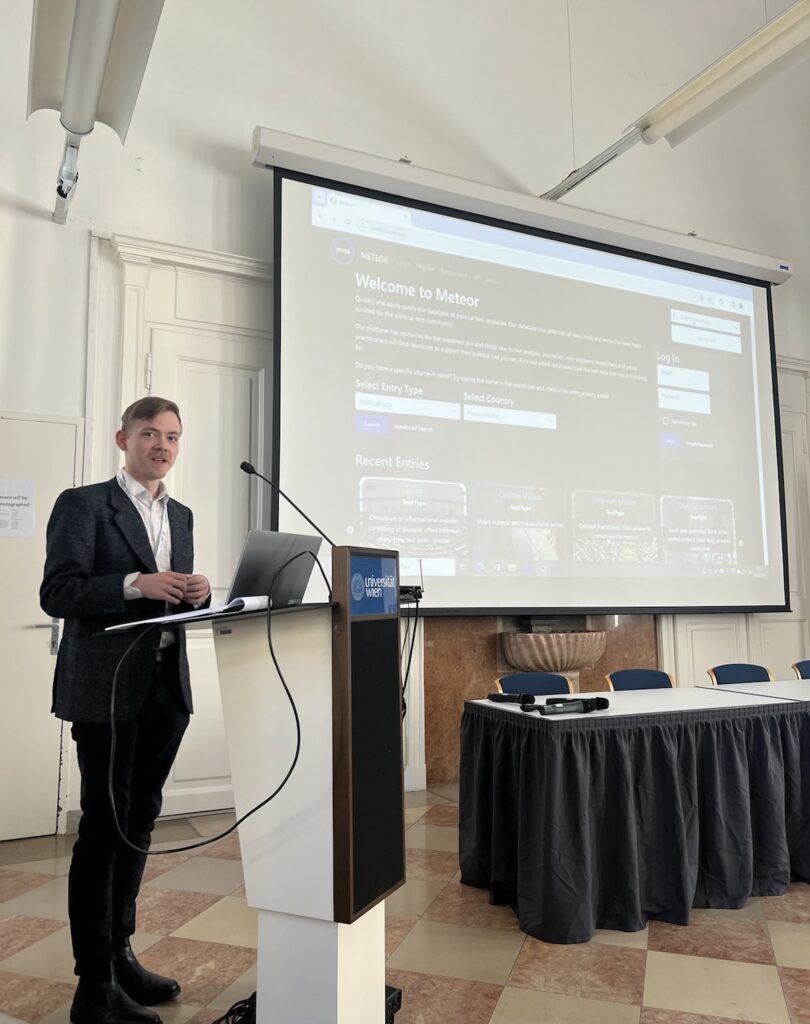
Participants of the conference also learned more about the MEDem Services. Steering Committee Member Lorenzo De Sio provided us with a first look at the MEDem Framework and at what the MEDem Concept and Measurement Map would be able to do. Marvin Stecker presented Meteor, a database of political text resources, that will become a key component of MEDem.
Steering Committee Member Georg Lutz and Melina Liethmann, Database Supervisor for DEMSCORE, highlighted the potential for collaboration with initiatives focused on specific data types, such as survey data and institutional data. On Friday, Christian Endt, a data journalist for the German weekly Die Zeit, showed us how Democracy Research is used by data journalists and was open to discussions about how the transfer from research to journalism could be optimized through MEDem.
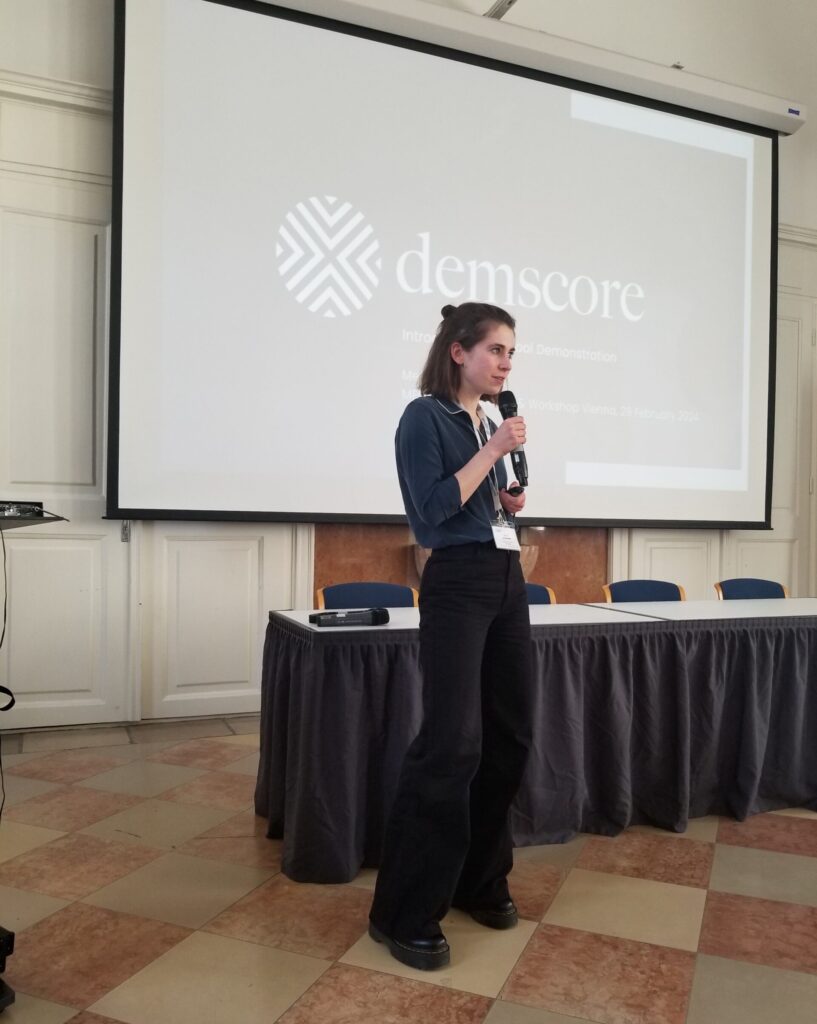
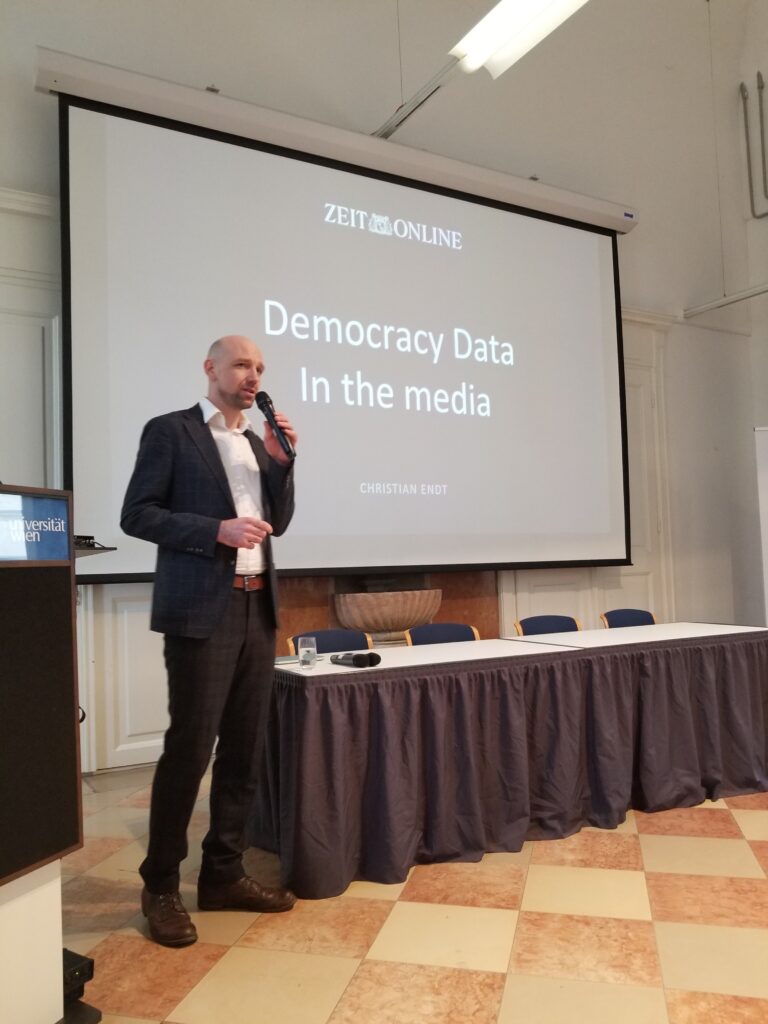
WORKSHOPS AND NEXT STEPS
The moderated workshop discussions were focused on the deliberation of ideas and proposals concerning the future trajectory of the MEDem Services and MEDem’s overall mission.
The different workshop groups highlighted the importance of the MEDem Concept and Measurement Map for data visibility and data linkage. Geocoded data, in particular, was discussed as an important type of data that needs more attention in data linkage and Democracy Research more generally. Furthermore, significant attention was devoted to delineating the role of MEDem as a Communication Hub, envisaged to fortify collaboration and facilitate knowledge dissemination within its community. Steering Committee Member Sylvia Kritzinger underscored the paramount importance of data linkage and visibility for MEDem stakeholders and beyond. She articulated, “It’s not just about linking data and working together, but also about the possibility to share experiences on data – not only within the MEDem research community but with citizens and non-academic stakeholders as well.”
We extend our gratitude to the City of Vienna and the Austrian Ministry of Education, Science, and Research for their financial support towards the successful organization of the event. We are also grateful to all the attendees who actively participated in the discussions and helped reflect on MEDem’s achievements and brainstorm the further development of the MEDem research infrastructure. Thank you for your support and commitment to our shared cause!
